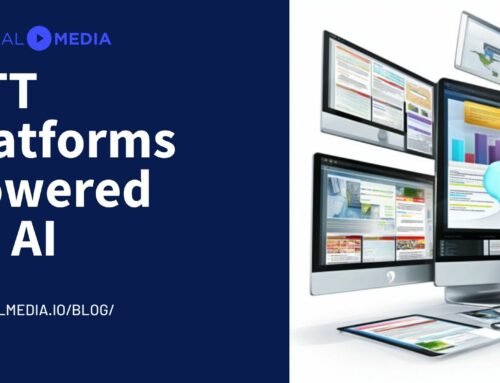1. Ease of use
The CMS should have an intuitive interface that makes it accessible even to users without technical knowledge. From content creation to publication, a user-friendly design is essential to maximize productivity.
2. Flexibility and customization
A quality CMS should be flexible enough to meet the specific needs of each project. This includes:
- Customizable themes and templates: Designs adaptable to your brand identity.
- Integration of modules or plugins: To add specific functionalities like contact forms, e-commerce, or multimedia galleries.
- Developer support: Options to modify code or develop custom features.
3. Bulk Content Upload
A CMS should include tools for uploading multiple files efficiently, ensuring a seamless process even in cases of unstable connectivity.
4. Comprehensive content monetization
A good CMS must provide advanced tools to monetize content, such as:
- Flexible revenue models: Native advertising (AVOD), subscriptions (SVOD), and pay-per-view (TVOD).
- Additional options: Integration of secure paywalls, discount coupons, content bundles, and support for multiple currencies and languages.
These features ensure diversified revenue streams and global accessibility for users.
5. Built-in SEO
The CMS should simplify content optimization for search engines, improving organic positioning. Key features include:
- Metadata editing: Titles, descriptions, and keywords.
- Automatic sitemap generation: For easier indexing by search engines.
- Friendly URL compatibility: Enhances user experience and SEO.
6. Support for Live Streaming
Live streaming is a modern feature that helps platforms expand their reach. A CMS should offer secure tools to manage live streams, ensuring content quality and protection.
7. Multichannel capabilities
In an omnichannel digital environment, the CMS should enable content distribution across multiple channels from a single platform. This includes:
- Web and Mobile: Responsive designs for an optimal experience on any device.
- Smart TVs and Apps: Options to distribute content through emerging technologies.
8. Performance and scalability
The CMS should be designed to handle large volumes of content and traffic without compromising load speed. This is crucial for both user experience and SEO rankings. Key features include:
- Fast loading speeds: Essential for improving user experience and search engine rankings.
- Cache Management: To reduce load times.
- Scalability to handle traffic surges: For growing projects or peak visitor periods.
9. Video encoding and transcoding
To serve global audiences, the CMS should allow for the creation of video copies in multiple formats and quality levels, ensuring an optimal viewing experience on any device and location.
10. Security and Privacy
Security is a fundamental aspect. The CMS must protect site and user data against threats such as:
- Regular updates: Patching known vulnerabilities.
- Protection against common attacks: Like SQL injections, XSS attacks, or brute force.
- Access control: Well-defined user permissions.
- Automatic backups: For data restoration in case of issues.
11. Multilingual support
Ability to manage content in multiple languages, facilitating the creation of multilingual sites to serve global audiences.
12. Support
Having support resources is essential to resolve issues or maximize the CMS's potential. This includes:
- Comprehensive documentation: Accessible guides and manuals.
- Technical Support: Fast response to incidents.
13. Advanced analytics and metrics
A CMS should integrate tools to analyze content performance. Features like engagement statistics and traffic analysis help creators make strategic, data-driven decisions. The CMS should offer:
- Custom dashboards: To view relevant metrics at a glance.
- Report generation: Downloadable reports with key KPIs.
- Integration with analytics tools: Like Google Analytics.
A CMS with these features not only allows for efficient content management but also ensures that the website or application meets the strategic and technical goals of the business. Choosing the right CMS can make the difference between a successful project and one that fails to reach its potential.
If you want to dive deeper, we recommend this article: 10 Keys to Choosing an OTT Service Provider.





